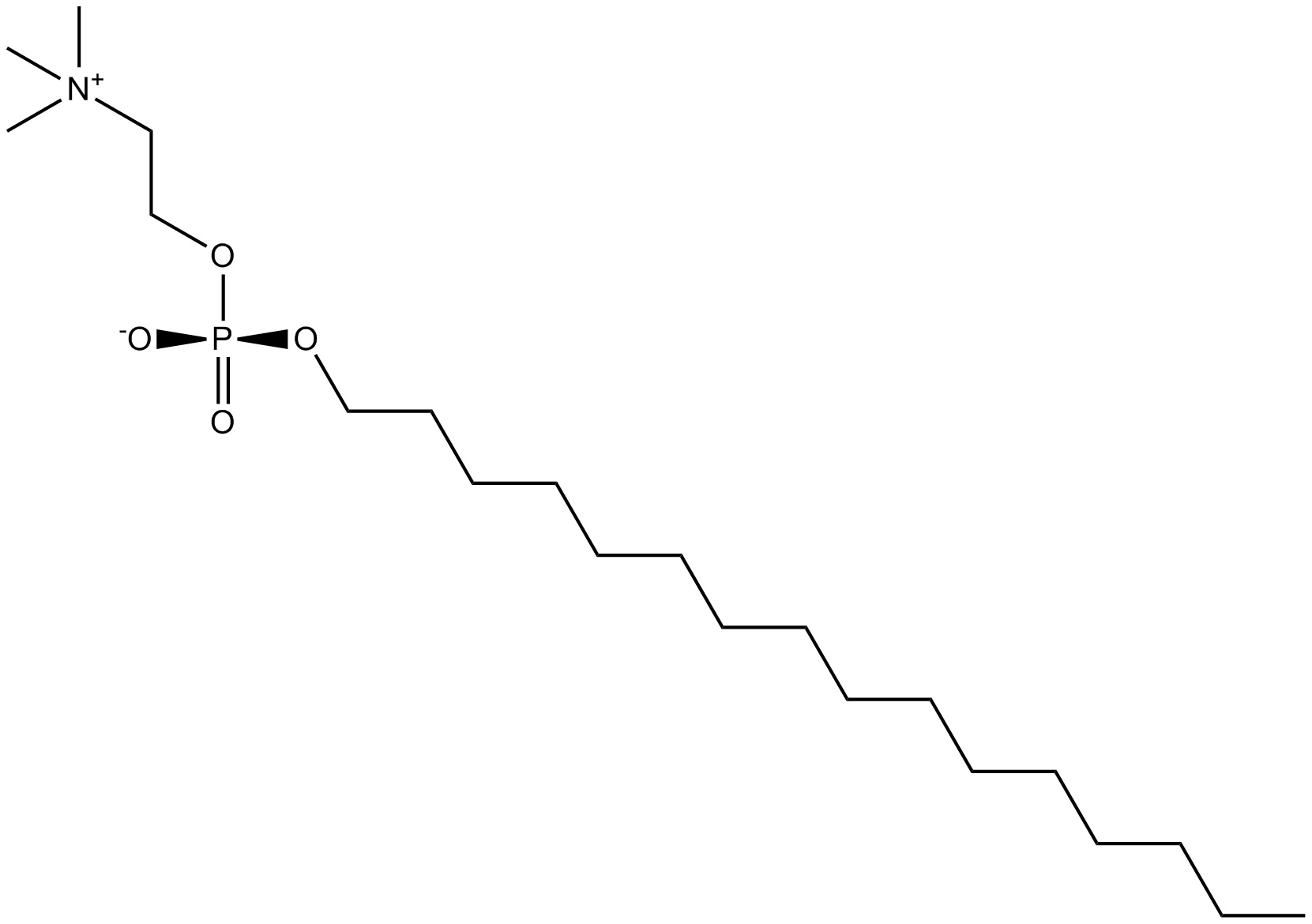Miltefosine (Synonyms: Hexadecylphosphocholine, HPC, NSC 605583) |
| Catalog No.GC10811 |
PI3K/Akt inhibitor
Products are for research use only. Not for human use. We do not sell to patients.

Cas No.: 58066-85-6
Sample solution is provided at 25 µL, 10mM.
Miltefosine is an inhibitor of PI3K/Akt signaling with IC50 value of 34.6±11.7μM, 6.8±0.9 μM when tested with MCF7 and Hela-WT respectively [1].
PI3K (phosphoinositide-3-kinase) family is an important part in the growth factor super-family signaling process, and can be activated by a variety of cytokines and chemical factors. The activation of PI3K can phosphorylate and activate AKT, localizing it in the plasma membrane. The PI3K/Akt pathway is an intracellular signaling pathway which plays an important role in regulating cell cycle, such as cellular quiescence, proliferation, cancer, longevity and so forth [2, 3]. Many studies have shown that PI3K/Akt had abnormal expression in patients with cancer or virus infection.
Miltefosine is an inhibitor for PI3K/Akt signaling. When tested with macrophages infected by human HIV-1 virus, miltefosine showed significant ability to reduce the viral production via inhibiting PI3K/Akt signaling pathway [4]. In L6E9 skeltal muscle cell line, treatment of milefosine resulted in the resistance of skeletal muscle cells via inhibiting PI3K/Akt signaling pathway [5].
References:
[1]. Rybczynska, M., et al., MDR1 causes resistance to the antitumour drug miltefosine. Br J Cancer, 2001. 84(10): p. 1405-11.
[2]. Bauer, T.M., M.R. Patel, and J.R. Infante, Targeting PI3 kinase in cancer. Pharmacol Ther, 2015. 146c: p. 53-60.
[3]. Minami, A., et al., Connection between Tumor Suppressor BRCA1 and PTEN in Damaged DNA Repair. Front Oncol, 2014. 4: p. 318.
[4]. Chugh, P., et al., Akt inhibitors as an HIV-1 infected macrophage-specific anti-viral therapy. Retrovirology, 2008. 5(11): p. 1742-4690.
[5]. Verma, N.K. and C.S. Dey, The anti-leishmanial drug miltefosine causes insulin resistance in skeletal muscle cells in vitro. Diabetologia, 2006. 49(7): p. 1656-60.
Average Rating: 5 (Based on Reviews and 34 reference(s) in Google Scholar.)
GLPBIO products are for RESEARCH USE ONLY. Please make sure your review or question is research based.
Required fields are marked with *




















